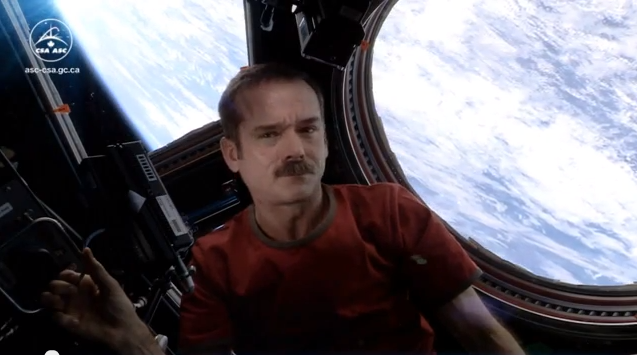 We started a tradition. At the beginning of each new SSEP flight opportunity, we now post on this blog the NASA Johnson Style video. It’s a way to get thousands of new student microgravity researchers and their communities into the spirit of this program. (Sound familiar Mission 5?)
We started a tradition. At the beginning of each new SSEP flight opportunity, we now post on this blog the NASA Johnson Style video. It’s a way to get thousands of new student microgravity researchers and their communities into the spirit of this program. (Sound familiar Mission 5?)
But why not post a powerful video for other key milestones across a SSEP flight opportunity, say every time a SSEP payload of experiments returns to Earth?
So … in honor of the Soyuz 35S return to Earth this Sunday with astronauts Fyodor Yurchikhin (Russia), Karen Nyberg (NASA), and Luca Parmitano (ESA), and the Falcon I payload of 7 SSEP Mission 3a experiments and all 32 Mission 3 Mission Patches, we post the following video. Our hope is to excite the students across the Mission 3a communities with returning experiments, as well as the nearly ten thousand SSEP student researchers in the 12 Mission 3b communities and 11 Mission 4 communities with experiments launching to ISS next month on Orb-1.
Just before his return to Earth on Soyuz 33S, on May 13, 2013, Expedition 35 International Space Station Commander and Canadian astronaut Chris Hadfield – the first Canadian to walk in space –released this video.
Teachers, we invite you to lower the lights in your classrooms, project this on a screen, and let all your SSEP student researchers feel that they truly are part of this adventure. You might also consider having a class discussion about the emotional content of this song, who is singing it (here is Chris’ bio at the Canadian Space Agency), where he is singing it, and what it must feel like to leave Low Earth Orbit and return to Earth.
Human exploration? It is a wondrously emotional endeavor, and we express that emotion in myriad ways – through art, through prose and poetry, through story-telling, and through music. And all this goes hand-in-hand with science, and more generally STEM – really. The human condition is an interdisciplinary tapestry – something to be celebrated in all our classrooms.
We shall not cease from Exploration.
And the end of all our exploring
will be to arrive where we started
and know the place for the first time.
-T.S. Eliot
PS – If anyone knows of a powerful video that would be great to post for the launch of each SSEP experiments payload, let us know by leaving a comment below:)
The Student Spaceflight Experiments Program (SSEP) is a program of the National Center for Earth and Space Science Education (NCESSE) in the U.S., and the Arthur C. Clarke Institute for Space Education internationally. It is enabled through a strategic partnership with NanoRacks LLC, working with NASA under a Space Act Agreement as part of the utilization of the International Space Station as a National Laboratory. SSEP is the first pre-college STEM education program that is both a U.S. national initiative and implemented as an on-orbit commercial space venture.
The Smithsonian National Air and Space Museum, Center for the Advancement of Science in Space (CASIS), Carnegie Institution of Washington, NASA Nebraska Space Grant Consortium, and Subaru of America, Inc., are National Partners on the Student Spaceflight Experiments Program.




